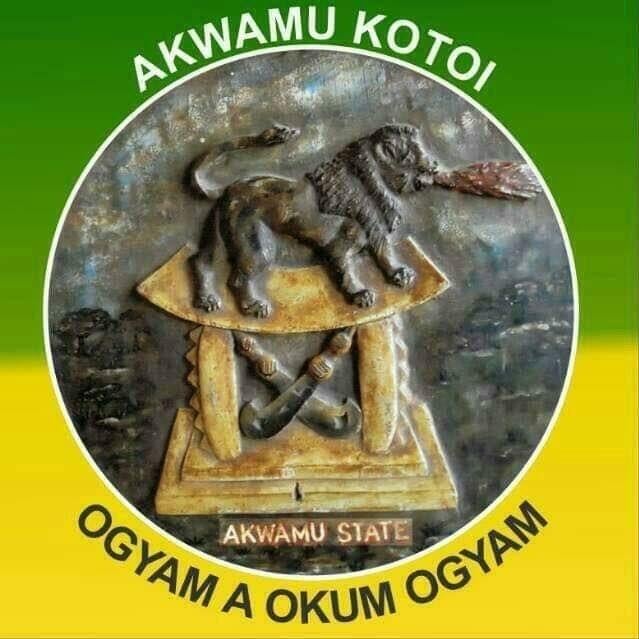The Yaa Ansaa Royal Family, custodians of the historic Akwamu Kingdom, are embarking on a global quest to reconnect with millions of descendants dispersed across the African diaspora. These descendants, largely unaware of their heritage, are the progeny of Akwamu royals and subjects exiled and enslaved during the tumultuous Danish-Akwamu War of 1730 and the subsequent Transatlantic Slave Trade. This initiative seeks to reunite a scattered people, restore their lost history, and demand justice for the enduring legacy of colonialism and slavery.
The royal lineage traces back through an unbroken matrilineal line to Queen Yaa Ansaa, founder of the Akwamu Empire in 1480, and further to Queen Amanirenas, the Nubian warrior queen who defied Roman expansion. This illustrious ancestry links the family to the Kushite Pharaohs of ancient Nubia and Egypt, solidifying their royal legacy predating European interference in Africa and establishing their ancestral custodianship of the Akwamu Empire. The 1730 war resulted in the loss of the western portion of the Akwamu Empire to the Danes, which later became part of the Danish Gold Coast. However, the eastern portion remained under the sovereign control of the Yaa Ansaa descendants, forming the independent Akwamu Kingdom. This eastern domain, distinct from the territories lost to European powers, remained under the family’s custodianship, preserving Akwamu identity, sovereignty, and tradition until the contested British involvement formalized in the unratified 1886 Aquamoo Treaty.
Recent research reveals that millions of individuals across the Americas, particularly in Brazil, Jamaica, Barbados, Trinidad and Tobago, Antigua, and the Virgin Islands, are direct descendants of the Akwamu royals and subjects captured and sold into slavery after the 1730 war. Among them are 436 Akwamu royals exiled to places like St. John in the Danish West Indies (now the US Virgin Islands). This diaspora now encompasses over 440,000 individuals in the Americas with ancestral ties to the Yaa Ansaa Royal Family, with potentially millions more connected to Akwamu subjects. Genealogical and oral history studies suggest that approximately 44,000 individuals within this group share a direct matrilineal link to the royal family and the Kushite Pharaohs. This vast diaspora, spanning generations and continents, represents a significant population with a shared heritage, now poised to discover and reclaim their ancestral legacy.
The royal family intends to utilize mitochondrial DNA (mtDNA) testing to identify lost descendants throughout the diaspora. This initiative aims not only to reunite family members but also to restore dignity and pursue justice for a kingdom and its people who suffered immense historical injustices. The descendants, scattered by the cruelties of slavery and the deliberate erasure of their history, are entitled to recognition, justice, and their rightful inheritance, particularly given the questionable legality of the 1886 Aquamoo Treaty. This treaty, signed between the Akwamu King and the British Governor of the Gold Coast, was never ratified, rendering it null and void under international law, according to the family. This lack of ratification casts a shadow over the legitimacy of the Akwamu Kingdom’s incorporation into the Gold Coast Colony and its subsequent cession to Germany and France in the 1890s.
Given the treaty’s unratified status, the Yaa Ansaa Royal Family asserts that the Akwamu Kingdom remains an unincorporated entity within present-day Ghana, Togo, and Benin. They demand the return of the entire kingdom or full compensation for its land and resources, valued at trillions of British pounds, reflecting the current market value. To support their claim, the family urges descendants of slavery to undergo DNA testing, both general ancestry tests and tribe-specific tests, to identify potential heirs to the Yaa Ansaa bloodline and descendants of other tribes historically residing within Akwamu territory. This information will be crucial in building a comprehensive case for restitution and recognition of the Akwamu people’s historical claim.
Pending confirmation of the 1886 treaty’s unratified status from the British Government, the royal family is prepared to launch a comprehensive effort to trace the wider Yaa Ansaa diaspora, including those lost during the war and the Transatlantic Slave Trade. Once their own DNA results are finalized, they plan a class-action lawsuit on behalf of all verified descendants, seeking monetary restitution based on the current value of the Akwamu Kingdom’s land and resources, and compensation for 138 years of displacement and suppression resulting from the British Crown’s alleged failure to recognize the kingdom’s sovereignty. This compensation also addresses the illegal cession of Akwamu territories and the profound historical erasure endured by the royal family and its subjects. Among the descendants are members of the “Winbush Generation,” royal heirs and subjects who form a significant part of the Black British population, including Members of Parliament of Caribbean heritage. This campaign aims to unite with them in seeking justice and a “win” for the entire Black diaspora.
As the world approaches the 300th anniversary of the fall of the Akwamu Empire, the Yaa Ansaa Royal Family is resolute in their pursuit of historical truth, sovereignty, and dignity for their people. Their ongoing efforts involve collaboration with international legal counsel on a case for sovereignty, restitution, and recognition. They are supported by an affidavit from the head of the family, a legal review of historical treaties and court rulings, and a forthcoming petition to reopen court proceedings. The family is actively seeking public support through a petition to the British Parliament and through fundraising. This multi-pronged approach underscores their commitment to bringing international attention to their cause and achieving justice for the Akwamu people.


